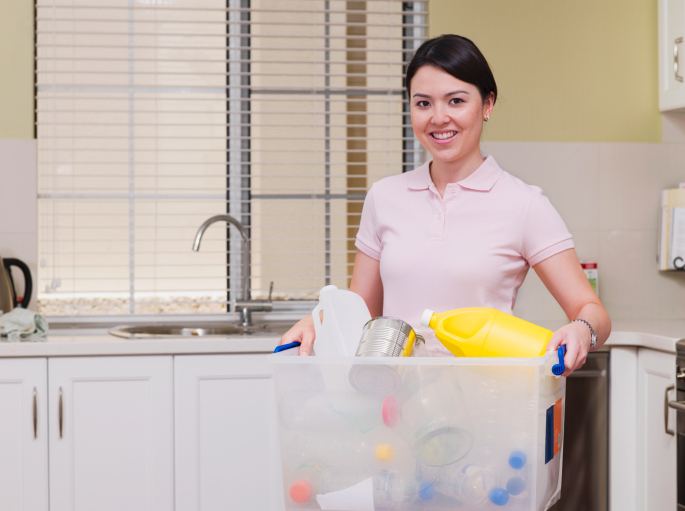Are you feeling overwhelmed at home? Take a moment to look around you. Are the rooms of your home neat and tidy, or are they cluttered and disorderly? If your home is disorganized, it may be impacting your stress level.
There are many ways that clutter can cause stress. It can overwhelm our brains with more information than we are equipped to handle, distract us and interfere with our productivity and focus, reduce our ability to relax, and interfere with creativity. It can also contribute to feelings of guilt—for example, when others unexpectedly visit your cluttered home, and you’re embarrassed that they’re seeing it in that state. Luckily, it’s spring cleaning season, and de-cluttering your home is not as difficult as you may think. Here are some simple strategies you can use to get started.
- Divide things into 3 piles: Keep, Donate, and Trash. Anything you’re sure you’ll need, keep it. Anything you don’t really have a need for but that is still usable can be donated. And anything unwanted and unusable should just go in the trash. Not sure what pile something should go in? Ask yourself these three questions: Do you love it? Do you use it? Could someone else use it?
- Take a trip down memory lane. Think back to the last time you used a particular item. If you’ve never used it, or you don’t see a reason to use it in the future, it’s probably a good candidate for the Donate pile.
- Find and use appealing storage solutions. Putting the items you want to keep in attractive bins and boxes can help your area look more tidy and organized. If you’re on a tight budget, you may even be able to find colorful boxes, bins and baskets at your local dollar store.
- Don’t do it alone. If the space you need to de-clutter is a place you share with others, enlist their help! Make it a cleaning party—put on some upbeat music and have everyone contribute their efforts.
- Need to make room in your closet? Try the closet experiment made famous by Oprah Winfrey. Hang all the clothing in your closet with the hangers in the reverse direction. After you wear and launder an item of clothing, hang it back up with the hanger facing the correct direction. After six months of doing this, you’ll get a very clear picture of which articles of clothing you actually use and which could be donated or discarded.
- Put things back where they belong. Once you’re done using something, don’t just toss it aside. Be sure to put it back in its proper place. This can help you keep things neat and prevent clutter from getting out of control.
- Create appropriate spaces for items. For example, don’t let magazines pile up on the couch or counter; purchase a magazine rack to hold them. Don’t just toss shoes in a corner of the room; get a shoe rack, or small shelves, so you can organize them better in your closet. When you run out of room in the rack or on the shelves, that’s a good indication that you should donate or toss some before buying any more.
- Create a grab-and-go space. The days of lost or misplaced keys are coming to an end! Near your door, install a shelf with hooks, or place small bins (one labeled with each family member’s name) on a table. This is a space for each family member to keep their keys, gloves, and other small items that they can easily grab on their way out the door.
- Having space issues? Get creative! There are plenty of ways you can make a little extra room to store items. If you don’t have enough room to store your beauty and personal care products in your bathroom, for example, hang an over-the-door organizer on the back of the door and store your smaller items there. Use tension rods inside cabinets to hang your spray bottles of cleaning products. If you don’t have enough space in your dresser, use boxes specially designed to fit under the bed to store sweaters and other out-of-season clothing.
For Health Advocate Members
If you are experiencing stress issues, and you are a Health Advocate member with access to our EAP+Work/Life program, give us a call! Our Licensed Professional Counselors and work/life specialists are available to help you with a variety of issues and can provide strategies to help you reduce your stress level.



